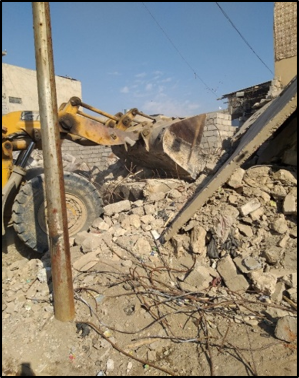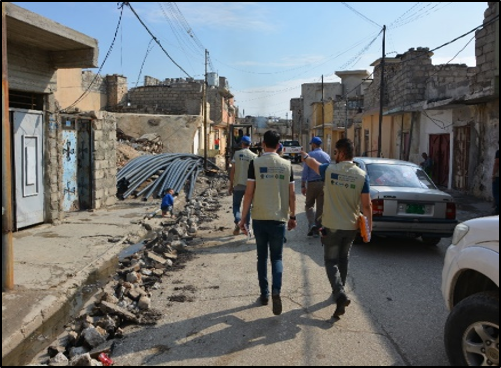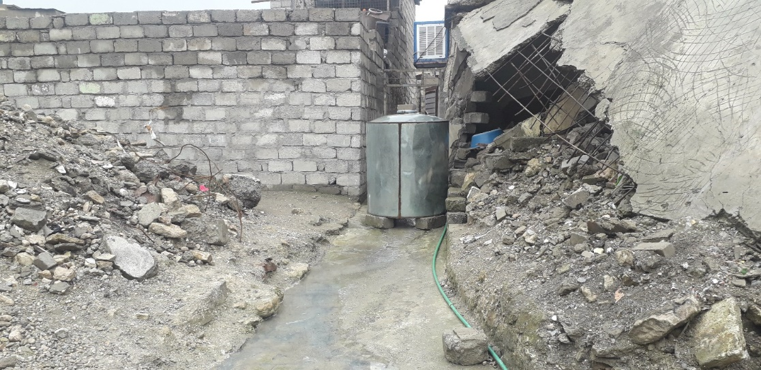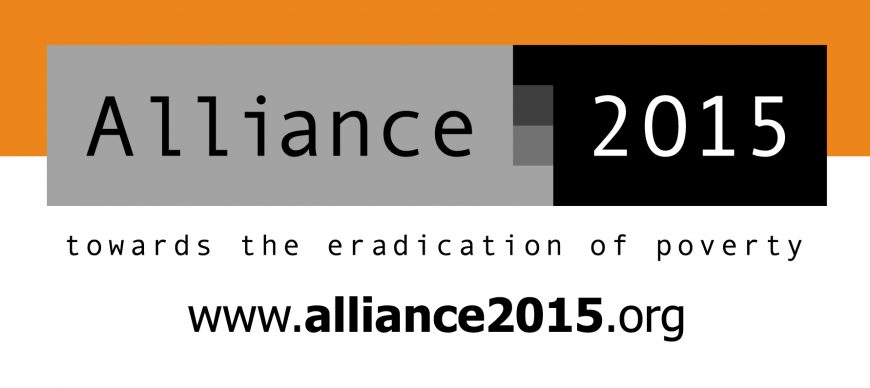As the sounds of shells reverberated through their house in Zummar district in northern Iraq in 2014, marking the beginning of an ISIL offensive, Umeima, 34, her husband and five children fled to Mosul City.
Umeima would go on to spend almost four years living in the city, with ISIL’s rule meaning she spent months on end locked inside and struggling to find enough to eat.
Polish Humanitarian Action, working in consortium with Welthungerhilfe (WHH), ACTED, and People in Need (PIN), worked to ensure Umeima and families like hers were able to access a clean and reliable water source once they could return to their homes.
Umeima’s Story
Umeima stayed in a relative’s house in Mosul until the end, witnessing the re-taking of Mosul by the Iraqi Government in early 2017. Just days before Iraqi Government forces entered the city, Umeima lost her husband during a shelling. She suddenly became the head of household and alone had to care for the needs of her five children.
When she felt it was safe to return to her house in Zummar district, Umeima found nothing left.

Umeima decided to move to her mother’s house in the Wadi Hajar neighbourhood of Mosul. To support her family, Umeima worked many jobs: sewing, bakery, and cooking. One of the biggest challenges for Fatima and her children was the scarcity and bad quality of the water in the area. She had to carry heavy bottles of water from the nearest shop, about one kilometre away from her house. She did not have enough disposable water to clean her house, bathe her children or cook food. Umeima said that the worst part for her was leaking pipes next to her house, which caused a stench as the water accumulated and went stagnant.
“In front of the house there was dirty, grey water flowing and accumulating in the rubbles, the smell was horrible. We submitted complaints to appropriate administrative offices, but to no avail,” said Fatima.

Polish Humanitarian Action Steps In
In October 2019, Polish Humanitarian Action (PAH) in coordination with the Ninewa Directorate of Water (DoW) visited the Wadi Hajar Neighbourhood to assess and start the rehabilitation of the water network in damaged parts of the neighborhood. PAH met with all neighbouring houses to ensure that most vulnerable inhabitants of the neighbourhood would benefit from their help, in the process, meeting with Umeima. Based on a full assessment of Umeima’s family’s needs, PAH’s WASH team then extended the pipe of potable water to her house to ensure they, along with the rest of the neighbourhood, could enjoy access to clean water.

This project is funded by the European Union (MADAD Trust Fund) and implemented in consortium with three Alliance2015 member organizations; ACTED, PIN and WHH.

